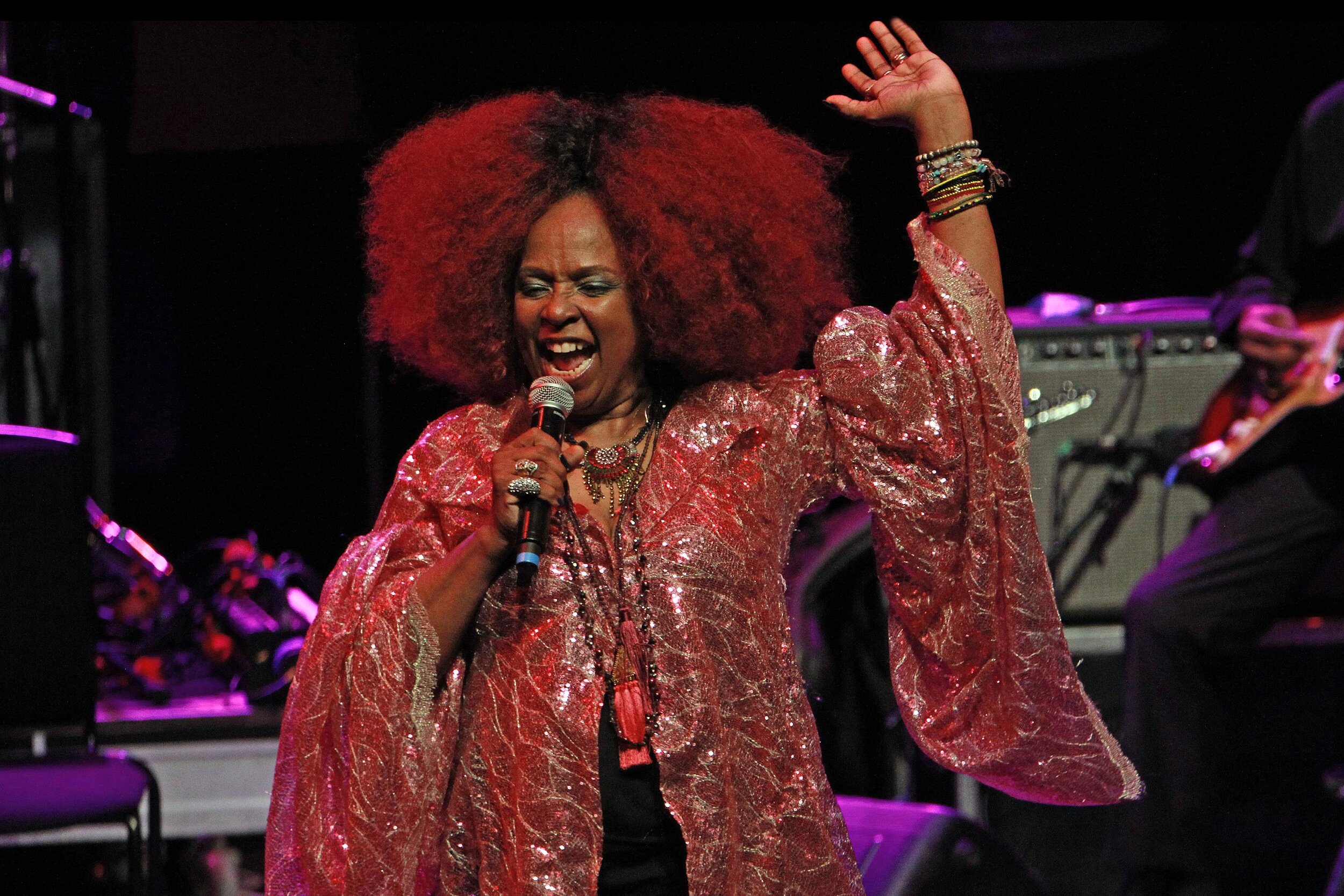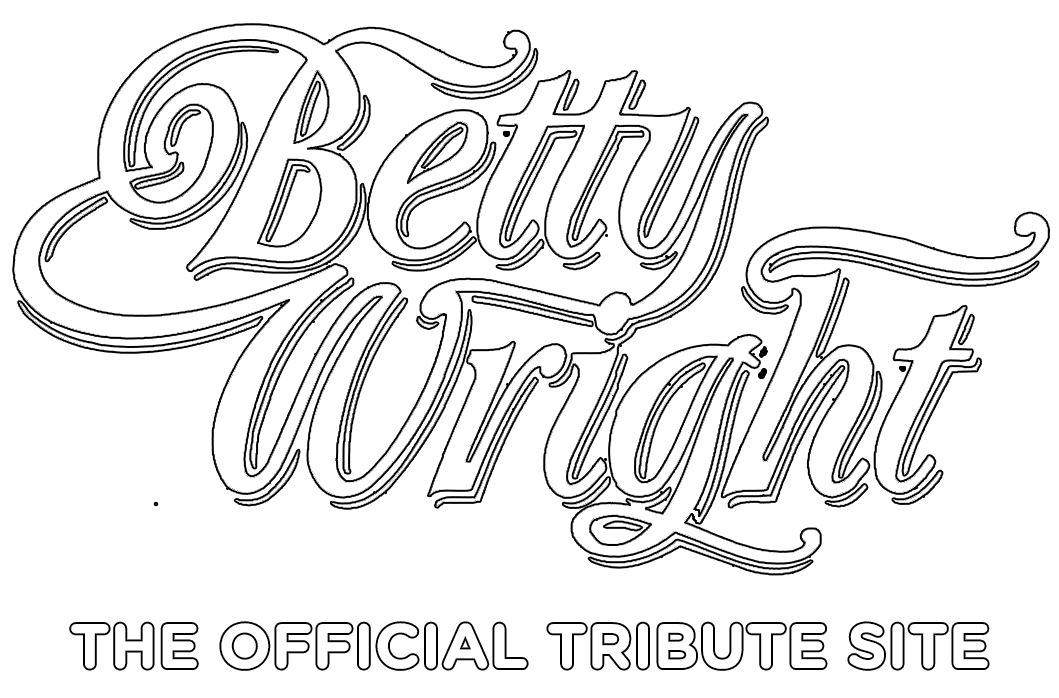
The Betty Wright Story
Bessie Regina Norris was born on December 21, 1953 in Miami, Florida, the city she would call home for most of her life. Betty, as she was called, began singing with her family gospel group, the Echoes of Joy, by the age of three. The youngest of six siblings, the group was led by her beloved mother Rosa. At 12, she was discovered after winning a radio contest by local producers Willie Clark and Johnny Pearsall. When she went down to Pearsall’s Johnny’s Records to collect her prize, a free 45, Betty was overheard singing Billy Stewart’s Summertime and quickly offered a chance to record. It took Rosa some time to be convinced her daughter should sing secular music. But, eventually, two singles came out on the Deep City and Solid Soul labels – Good Lovin and Mr. Lucky – before Betty was signed by Alston Records, at the time distributed by Atco. At 14, Betty had her first national hit with Girls Can’t Do What The Guys Do, which went to #33 on the pop charts and number #15 R&B. The song came from her debut album My First Time Around.
Betty would tour to support the record with the likes of James Brown and Mable John. She took a little time to focus on high school and her studies while Alston continued to release singles. Her second album, I Love The Way You Love, came out in 1971 and featured Clean Up Woman, a song credited to Clark and co-producer Clarence Reid that Betty had actually helped write. Clean Up Woman would reach #6 pop and #2 R&B (where it would stay for a whopping eight weeks) and sell over six million records worldwide. In 1972, Betty received both Grammy and American Music Award nominations for Clean Up Woman, but lost both to Aretha Franklin. Betty would win a Grammy in 1975, though, for co-writing her Where Is The Love, which was named R&B Song of the Year. The award made history as Wright became the first woman to win a Grammy for writing or co-writing the winner in that category which was introduced in 1968. Throughout the 70s, Betty continued to rack up hits and her 1978 platinum selling Live album would become a classic and produce a live version of her song Tonight Is The Night that would remain one of the most requested songs of her career.
Known as an incredible live performer, Betty would tour with Teddy Pendergrass and was the opening act on Bob Marley’s first American tour. Variety said her live act offered audiences “pleasure – of the sort that lasts and reverberates.” She was also slated to go on tour with Marvin Gaye just before his tragic death. Betty was one of the first Black artists to appear in South Africa but while well received she ended up canceling one of her shows after an incident of racial discrimination. In 1981, she refused a $1 million offer to appear at the South African resort Sun City.
After Alston and its parent company TK Records folded, Betty signed in 1980 with Epic Records. Her eponymous first release featured production by Stevie Wonder and Andre Fisher. And its follow up, Wright Back At You, was produced by Marlon Jackson. Betty actually lived at the Jackson compound in Encino while the record was being produced. She gave vocal lessons to Janet and LaToya Jackson and teamed up with their brother Michael to add backing vocals to Stevie’s All I Do along with Eddie Levert and Walter Williams as well as on Wonder’s tribute to Rev. Dr. Martin Luther King, Jr., Happy Birthday. She also added a rap to the Richard “Dimples” Fields song She’s Got Papers on Me, a controversial tune that would end up the subject of a story in US News & World Report called Flack Over a Rap.
After Epic, Betty did a couple of dance records, including the international favorite Sinderella and One Step Up, Two Steps Back. In 1986, she released the album Sevens on her own Ms. B Records (at the time distributed by First String Records). Two years later, she became the first African-American woman to go gold on her own label with the release of the Mother Wit album. Mother Wit produced the hits No Pain, No Gain and After The Pain. Betty would go on to release several more albums on her own label, distributed for a time by Steve Alaimo’s Vision Records and, for the B-Attitudes album, The Hines Co./Solar Records. In 1994, Betty received permission from Berry Gordy to produce a duet of Distant Lover using Marvin Gaye’s original vocals.
She would also be busy around this time writing and doing production for the likes of Millie Jackson, saxophonist Ronnie Laws and Rita and Cedella Marley Booker. Betty also provided backing vocals and vocal coaching to Gloria Estefan both on her comeback record Coming Out of the Dark and the follow-up tour. It was while in Europe with Estefan that Betty heard word of a new song climbing up the charts. Only Color Me Badd’s I Wanna Sex You Up didn’t really sound that new. It sampled Betty’s voice without permission and featured the bass line and melody of her classic Tonight Is The Night. Betty was not having it. She negotiated and walked away with half the songwriting royalties for the song.
A self-contained powerhouse, in addition to Ms. B Records, Betty published songs under the auspices of her own Miami Spice Music and recorded herself and other artists in her own recording studio, which she named High Place Recording Suite. Some 20-plus years after her humble start, Betty found herself more in demand than ever. She traveled around the globe performing at the opening of the Planet Hollywood chain of restaurants, owned in part by Bruce Willis and Sylvester Stallone. She provided vocal coaching to Jennifer Lopez for her first album. Around this time, she also became one of the most sampled R&B artists in the game when rappers Candyman (Knockin’ Boots), Tupac (If I Die 2nite), DJ Quick (Tonite) as well as singers Mary J. Blige (Real Love – Hip Hop Remix), SWV (I’m So Into You) and En Vogue (Lovin’ You) featured her earlier hits on new tracks. She was an in-demand session artist as well, doing backing vocals for the likes of Phyllis Hyman, Regina Belle and Stephen Stills.
As the new millennium approached, Betty was as busy as ever. She received the Rhythm & Blues Foundation’s Pioneer Award in 2000. That same year, she teamed up with Erykah Badu to co-write and provide harmony vocals on the song A.D. 2000 from the Mama’s Gun album. Two years later, she released the Fit For A King album featuring the controversial single U R a Ho (and You Don’t Know). Betty also organized and directed children’s choirs during this time to sing on tracks by Michael Jackson and Trick Daddy.
In 2003 and 2004, Betty co-produced the Joss Stone albums Soul Sessions and Mind, Body & Soul, receiving another Grammy nomination for the latter. She also provided vocal coaching to Stone and Betty and her musical director Angelo Morris traveled with the British sensation on a mini-tour of Borders bookstores to promote her first album. In 2007, Betty teamed up with her friend Angie Stone for the single Baby, which received a Grammy nomination. And the following year she received yet another Grammy nomination for appearing on the album Tha Carter III by Lil’ Wayne.
Betty teamed up with Questlove and The Roots who produced her 2011 album, Betty Wright: The Movie. The album featured collaborations with Snoop Dogg, Lil’ Wayne, Joss Stone and Lenny Williams and included the song In The Middle of the Game, which she performed on the Jimmy Fallon show. Betty was also nominated for Grammys in 2011 and 2012, for the songs Go and Surrender respectively. Betty would release her 18th and final album, Living … Love … Lies, which she wrote and produced with Morris, in 2014.
In the last years of her life, Betty remained as active as ever. In 2015, she performed with the Miami Mass Choir on the album Miami Mass Choir Live at the Adrienne Arsht Center singing That’s What He Is. She was featured on the DJ Khaled single Holy Key, in 2016, and performed it live with Khaled on the BET Awards. And she recorded the Billie Holiday classic Strange Fruit – with Salaam Remi and from the soundtrack of the Netflix original Grass is Greener – in 2019.
Betty died following a battle with cancer on Mother’s Day, May 10, 2020. She is survived by her four children Namphuyo Aisha McCray, Patrice Parker, Chaka Williams and Asher Williams. She was preceded in death by her son Patrick Parker, who was shot to death in 2005. Today her music lives on and continues to be sampled and revisited. And it’s safe to say that Betty’s place in the annals of music history is well documented and secure. There will always and forever be only one Clean Up Woman.

